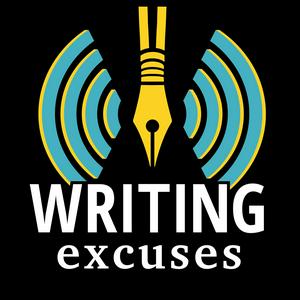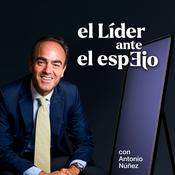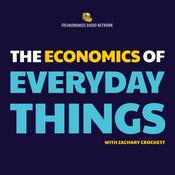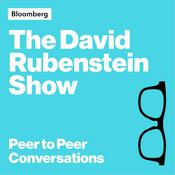Writing Excuses
Mary Robinette Kowal, DongWon Song, Erin Roberts, Dan Wells, and Howard Tayler

Último episodio
976 episodios
- To celebrate Mary Robinette’s birthday today (!!), she is taking us inside the craft (and emotional engine) of her short story “With Her Serpent Locks,” using it as a case study in beginnings, control, and creative “leveling up.” Our hosts dig into grounding the reader through myth, pattern, and delayed information, and how a familiar framework can make readers feel both clever and cared for. The conversation unpacks how intentional choices—like withholding names, structuring scenes around question words, and planting details early—create trust and momentum. Along the way, we talk honestly about what it feels like when craft skills become internalized and a story finally clicks into ease.
Homework:
Take a strong emotion you’ve felt recently and describe it as a metaphor. Then use that metaphor as a writing prompt.
Final WXR Cruise!
Our final WXR cruise sets sail for Alaska in September 2026—get your tickets here!
Credits: Your hosts for this episode were Marshall Carr, Erin Roberts, DongWon Song, and Mary Robinette Kowal. It was produced by Emma Reynolds, recorded by Marshall Carr, Jr., and mastered by Alex Jackson.
Join Our Writing Community!
Writing Retreats
Newsletter
Patreon
Instagram
Threads
Bluesky
TikTok
YouTube
Facebook
Our Sponsors:
* Check out Gusto: https://gusto.com/WX
* Check out Quince: https://quince.com/wx
* Check out Talkiatry: https://talkiatry.com/WX
Support this podcast at — https://redcircle.com/writing-excuses2130/donations
Advertising Inquiries: https://redcircle.com/brands
Privacy & Opt-Out: https://redcircle.com/privacy - In this episode, our hosts dive into what makes a strong beginning and why it matters so much to readers. They talk about openings as an act of hospitality, exploring how tone, control, and carefully chosen details help readers feel grounded and cared for from the first page. Using the metaphor of hosting a party, they unpack common mistakes like starting too early, overwhelming readers with detail, or failing to make a clear promise. The discussion also reassures writers that beginnings often change in revision—and that’s not just normal, it’s necessary.
Homework:
Create an artificial slush pile of beginnings. Read them cold and note which ones make you lean in and why.
ANNOUNCEMENTS:
FEBRUARY 15th: Cruise Prices Increase
The final WXR cruise sets sail for Alaska in September 2026—get your tickets now before prices increase on February 15th!
Credits: Your hosts for this episode were Erin Roberts, DongWon Song, and Mary Robinette Kowal. It was produced by Emma Reynolds, recorded by Marshall Carr, Jr., and mastered by Alex Jackson.
Join Our Writing Community!
Writing Retreats
Newsletter
Patreon
Instagram
Threads
Bluesky
TikTok
YouTube
Facebook
Our Sponsors:
* Check out Gusto: https://gusto.com/WX
* Check out Quince: https://quince.com/wx
* Check out Talkiatry: https://talkiatry.com/WX
Support this podcast at — https://redcircle.com/writing-excuses2130/donations
Advertising Inquiries: https://redcircle.com/brands
Privacy & Opt-Out: https://redcircle.com/privacy - Today, our hosts dig into how stories can feel fresh without losing what readers love. They explore the idea of “same but different” across genres, sequels, and series—looking at how small shifts in structure, context, tone, or theme can create meaningful novelty. Drawing on examples from novels, film, television, and games, we unpack how patterns, expectations, and core questions shape reader experience. Our conversation also widens to encompass the larger question of how writers can evolve while still feeling recognizably like themselves.
Homework:
Choose two works from the same franchise or series. Break down what stayed the same and what changed, then reflect on which choices felt satisfying, surprising, or off-putting—and why.
ANNOUNCEMENTS:
2/15 Cruise Prices Increase
The final WXR cruise* sets sail for Alaska in September 2026—get your tickets now before prices increase on February 15th!
Credits: Your hosts for this episode were Erin Roberts, DongWon Song, and Mary Robinette Kowal. It was produced by Emma Reynolds, recorded by Marshall Carr, Jr., and mastered by Alex Jackson.
Join Our Writing Community!
Writing Retreats
Newsletter
Patreon
Instagram
Threads
Bluesky
TikTok
YouTube
Facebook
Our Sponsors:
* Check out Gusto: https://gusto.com/WX
* Check out Quince: https://quince.com/wx
* Check out Talkiatry: https://talkiatry.com/WX
Support this podcast at — https://redcircle.com/writing-excuses2130/donations
Advertising Inquiries: https://redcircle.com/brands
Privacy & Opt-Out: https://redcircle.com/privacy - Our hosts take on the Hero’s Journey—where it came from, why it endures, and why it can make writers uneasy. They break it down as a tool (and not a rule), exploring how pattern recognition works in storytelling without turning structure into a formula. Along the way, they discuss reluctant heroes, mentors, departures, and returns, using familiar examples from fantasy, film, and beyond. The conversation also digs into how stories can satisfy expectations—or deliberately invert them—without becoming predictable or tropey.
Homework:
Take a simple outline of the Hero’s Journey (we’ll include one in the liner notes). On an index card or Post-it, list as many stories, films, or shows as you can that follow this pattern, just to see how and where it shows up.
ANNOUNCEMENTS:
2/15 Cruise Prices Increase
The final WXR cruise* sets sail for Alaska in September 2026—get your tickets now before prices increase on February 15th!
Credits: Your hosts for this episode were Erin Roberts, DongWon Song, and Howard Tayler. It was produced by Emma Reynolds, recorded by Marshall Carr, Jr., and mastered by Alex Jackson.
Join Our Writing Community!
Writing Retreats
Newsletter
Patreon
Instagram
Threads
Bluesky
TikTok
YouTube
Facebook
Our Sponsors:
* Check out Gusto: https://gusto.com/WX
* Check out Quince: https://quince.com/wx
* Check out Talkiatry: https://talkiatry.com/WX
Support this podcast at — https://redcircle.com/writing-excuses2130/donations
Advertising Inquiries: https://redcircle.com/brands
Privacy & Opt-Out: https://redcircle.com/privacy - Plot isn’t a set of commandments—it’s a collection of patterns we’ve learned to recognize. This episode kicks off the season’s deep dive into deconstructing plots, asking what different story structures are really doing beneath the surface and why they work (or don’t). Our hosts unpack plot as a toolbox rather than a formula, exploring action plots vs. emotion plots, Western vs. non-Western structures, and how audience expectations shape everything from middles to endings. This conversation reframes plot as a way to pull readers through a story—not to box writers in.
Homework:
Pick a story you enjoy and gently reverse-engineer it. Go scene by scene and label each one simply as “good thing happened” or “bad thing happened.” Look for patterns you didn’t realize were there.
ANNOUNCEMENTS:
2/15 Cruise Prices Increase
The final WXR cruise* sets sail for Alaska in September 2026—get your tickets now before prices increase on February 15th!
Credits: Your hosts for this episode were Erin Roberts, DongWon Song, and Mary Robinette Kowal. It was produced by Emma Reynolds, recorded by Marshall Carr, Jr., and mastered by Alex Jackson.
Join Our Writing Community!
Writing Retreats
Newsletter
Patreon
Instagram
Threads
Bluesky
TikTok
YouTube
Facebook
Our Sponsors:
* Check out Gusto: https://gusto.com/WX
* Check out Quince: https://quince.com/wx
* Check out Talkiatry: https://talkiatry.com/WX
Support this podcast at — https://redcircle.com/writing-excuses2130/donations
Advertising Inquiries: https://redcircle.com/brands
Privacy & Opt-Out: https://redcircle.com/privacy
Más podcasts de Economía y empresa
Podcasts a la moda de Economía y empresa
Acerca de Writing Excuses
Fifteen minutes long, because you're in a hurry, and we're not that smart.
Sitio web del podcastEscucha Writing Excuses, Kapital y muchos más podcasts de todo el mundo con la aplicación de radio.es

Descarga la app gratuita: radio.es
- Añadir radios y podcasts a favoritos
- Transmisión por Wi-Fi y Bluetooth
- Carplay & Android Auto compatible
- Muchas otras funciones de la app
Descarga la app gratuita: radio.es
- Añadir radios y podcasts a favoritos
- Transmisión por Wi-Fi y Bluetooth
- Carplay & Android Auto compatible
- Muchas otras funciones de la app


Writing Excuses
Escanea el código,
Descarga la app,
Escucha.
Descarga la app,
Escucha.







































